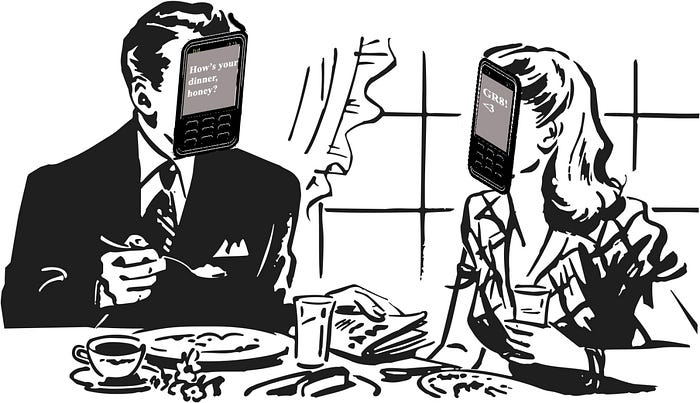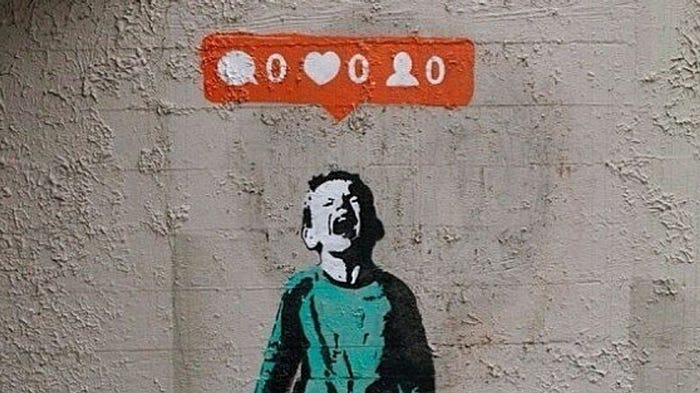Don’t Look Up: When Art Speaks Truth To Power On A Screen

The Media and The Division that Distracts
Don’t Look Up is a masterclass in how media and social media hold the cards of division. Division that distracts from the main event.
I’ve endured a lifetime of insults as a result of multi-minority marks in my heritage, but, I have never taken offence at any of it. Because I wasn’t being triggered and driven by data on a daily basis that made me feel persecuted. I am a mixed-race son of lesbian parents and the grandson of a midget (who actually had stones thrown at her when she walked down the street in the 1940s). So, I adopted a level of tolerance for intolerance from an early age, that by social media’s standards, would appear to be extinct.
Of course, real persecution of distinct groups exists, and I have campaigned for many of them. But despite that, I am still optimistic that in the real world, we actually get on with each other much better than the digital world suggests. Real in-person communication over remote digital dialogue needs a re-boot if we are ever to make progress on climate inaction.
Conversing Vs Metaversing
Deluded promises from Facebook that the Metaverse that can heal the world pale into insignificance in comparison to what happens when human beings sit at the table together to share. Armchair tweeting to each other can mobilise people to a cause, but it isn’t enough to unite us and effect real change when our digital apps are turning people against each other.

At the start of 2021, I spoke to peace activist Jo Berry on my podcast Super Connected Conversations. Jo speaks to world leaders who find themselves on the brink of military conflict. By creating conversations in eye to eye meetings, her work of reconciliation proves how opposing forces can realise there is more that unites than divides us, and in doing so, avoids unnecessary suffering on both sides. I think this is an act of magic.
How can we meet each other’s truth if algorithms are designed to push us to extremes?
Looking through the lens of Facebook and Twitter, any of us can be forgiven for thinking the majority of the human race is at war with one another. And like Covid, climate change has turned into a yes/no debate with all the energy going into the debate and less energy into the action.
The extremes we are pushed to reinforce our own ethics to the point that anything different is perceived as our enemy, and that only really benefits big business.

Breaking Bread and Breaking Division
Having dinner with a group of close friends over the holidays — a mix of Brexiteers, Remainers, pro-vaccine, anti-vaccine, vegetarians and carnivores, I observed first-hand how people who have different opinions treat each other differently in person than they may do on social media.
We arrived and left with our differences, but we also left with an understanding of each other. No one tried to change each other’s minds. Nobody judged harshly. Opinions were voiced but were absorbed and accepted by the advantage of our proximity. There wasn’t always agreement. But there was a safe space to express freely, without fear of becoming unfriended around the table.
Above all, there was empathy.
Less Is More
Imagine if we reallocated all the energy we spend on Social and Mainstream media into real-time, embodied connection. When it comes to effecting real change, I suspect that a hundred people sitting together at a town hall would be far more powerful than thousands of people engaging for seconds on social media. Especially when it comes to climate crisis.

Don’t Look Up: Screen Time With Meaning
‘Don’t Look Up’ arrived on my radar, boasting half a dozen of my favourite contemporary actors. I watched the film on Christmas Eve knowing nothing about it, and as the final scene punched me in the heart, I thought ‘that’s the first piece of mainstream art I’ve seen since The Railway Man that taught me something extraordinary about the human condition’
The destructive elements of social media and mainstream media were the big take away for me. This film isn’t just a metaphor for climate crisis. It is a mirror for every global crisis we are confronted with, from climate to Covid, to identity politics. How anything, when fused with our fast food approach to consuming current issues, forces us to defend our own position by attacking those who don’t agree with us.
‘Don’t Look Up’ highlights the dangers of the speed of information and how our obsession with data undermines human instincts, human connection and rationalism.

‘Don’t Look Up’ has done for our communication crisis, what popular art and music used to do on a regular basis.
It makes us question, make us think and helps us to review our position before we take action. That it’s positioned as entertainment is a side-show. It’s humour is an important tool to help us navigate painful truths that are hard to face, similar to the humour I mentioned at the start of this blog that helped me get through my life as a model of minority.
If a piece of art speaks truth to power, it will, for the most part, be undermined by social media, mainstream media and global corporations for all its worth, at the social and spiritual expense of all of us.
Since it’s release, this juggernaut of art that speaks truth to power is already being used across our ‘innovative’ platforms of communication to divide us: even before the multiple messages the film contains have had time to land in our hearts.
That the regular hacks in the media are following the same tired reviewing conventions they employ for the latest Marvel movie is possibly the funniest and most short-sighted response of all.
The critics panning ‘Don’t Look Up’ are doing it from inside the very filter bubble that the film has just burst.

That a film like ‘Don’t Look Up’ has been produced by one of the biggest streaming services in the world is a wonder to behold, and one message of the film is clearer than any other…
We cannot hold on to corporate donor approved delusions at the same time as holding on to our love for humanity and the phenomenal world we live in.
Whatever the message that comes through our digital portals, where an idea threatens the concept of corporate power, control and financial growth, these optimistic voices are, more often than not, distorted, suppressed or worse, cancelled.
We don’t need to go one way or the other at the dinner table of differences. But maybe we do need to acknowledge and hear all the voices, without the distortion, suppression or cancellation on the screens we gaze into.

And whether it’s to address the crisis of climate change, gender parity, health or social identity, the potential for improvement is limited when debates are represented on screens. Disembodied opinions are as likely to affect change as a notice board with so many notes that it’s impossible to read.
As Dr Iain McGilchrist says:
“We are responding to a ‘representation’ of the world”
Don’t Look Up is simply the most valuable visual I have given my screen time to in years. It presents a perfect mirror image of a beautiful species who are forgetting how to communicate with each other and communicating with representations of each other instead.
Have we exchanged communication for broadcasting?
Embodied communication is vital to navigate the journeys we all find ourselves on. As Jaron Lanier has pointed out time and time again, the algorithms that affect social modification are built to push us to the extremes of one thing or another.
To live in the possibility of ‘Maybe’ algorithms might be a long way off for AI, so perhaps it’s up to us to create a more fluid alternative.
Off screen and eye to eye.

Revolutions will not only ‘NOT be televised’. They will only happen where commercial value cannot be measured.
It’s already happening. Some of the most progressive, pro-humanity organisations are appearing every day, moving between and beyond the extremes of mainstream channels of information.
We need alternatives that aren’t an ‘either/or’ certainty, or narratives that only support or debunk. Ways to connect that are off the clock, without corporate donor or/and state approval. We need spaces that put our relationship to each other and the planet in focus, instead of endless capitalist convenience.
The real power innate in our relationship to money lies in our ability to sacrifice it for the greater good
It is the sacrifice that ‘Don’t Look Up’ dares to suggest that puts utopianism and our very survival ahead of GDP.
Whatever our individual truths may be, ‘Don’t Look Up’ asks us to look inwards and pause for thought before we are distracted by the next broadcast.
While Netflix remains an infinite running tap of entertainment, I am not confusing their number one film for another meal of eye-candy convenience. This is a triumph for our collective screen time, and I hope it sets a trend for more meaning on our screens to come.
Tim Arnold is a singer songwriter, film maker, activist, recipient of BBC Album of The Year and founder of Save Soho — a coalition of artists who came together to protect iconic music venues in the United Kingdom. Learn more.
